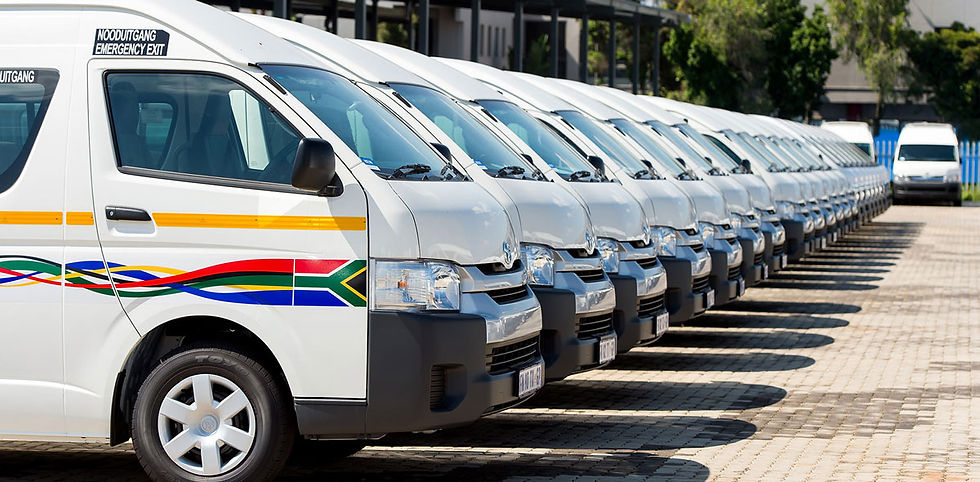South Africa’s taxi panic: Viral “one-passenger” claims spark official pushback
- Southerton Business Times

- Aug 19, 2025
- 2 min read

For much of the long weekend, South African social media platforms were awash with alarming posts and voice notes claiming taxi operators were blocking roads and ordering motorists to carry no more than one passenger—or risk having their cars damaged. By early Monday, authorities and the industry’s own national body were publicly—and firmly—pushing back, calling the claims false and warning that any attempt to police private vehicles is illegal. The whiplash between viral warnings and official denials underscores a recurring tension in South Africa’s commuter economy: even unverified threats can cause real-world disruption when they tap into deep-seated anxieties about taxi-related intimidation and violence.
In KwaZulu-Natal, the provincial Department of Transport moved quickly to clarify the law. “It is illegal for anyone to stop cars, pull out passengers and force them to use taxis,” the department said in a statement responding to the viral posts, which had alleged a province-wide clampdown by operators. The department rejected the idea that any taxi association could dictate how many people a private motorist may carry, effectively telling motorists to ignore such instructions and report intimidation to law enforcement.
Nationally, the South African National Taxi Council (Santaco) also dismissed the circulating claims. Santaco said assertions that taxi drivers were blocking motorists with more than one passenger were “false and misleading,” urging the public to avoid sharing unverified content that can stoke panic and damage the sector’s reputation. Other online sources reported Santaco’s denial, noting that screenshots and posts warning of a “one-passenger rule” had spread rapidly online over the weekend.
That the rumors gained traction at all speaks to the broader context. South Africa’s minibus taxi industry remains the backbone of urban mobility, transporting millions daily, but it has also been synonymous with periodic flare-ups over routes, permits, and market share. In June, parts of the Western Cape again saw taxi tensions spill over in Somerset West, prompting warnings for commuters to avoid the area during a stand-off between rival groups. Earlier this year, analysts pointed to long-running disputes in Gauteng involving Soweto associations as emblematic of a structural problem: unresolved governance gaps around routes and permitting that allow small sparks to become stand-offs.
This weekend’s claims also highlighted how misinformation loops can feed real fear. Multiple Facebook posts amplified the “no more than one passenger” narrative, with some accompanied by alarming images of blocked roads. Yet, as officials note, social posts are not evidence of sanctioned action—and any real attempts to stop private vehicles and enforce such “rules” would amount to criminal conduct.
Still, perception is powerful. Even when false, viral warnings can alter behavior: motorists reroute trips, parents postpone school lifts, and businesses plan around potential bottlenecks. That is why clear, early communication matters—both from authorities and the industry. On Monday, provincial messaging stressed that motorists should report intimidation to police, while Santaco sought to separate the sector’s image from the chaos of rumor.





Comments